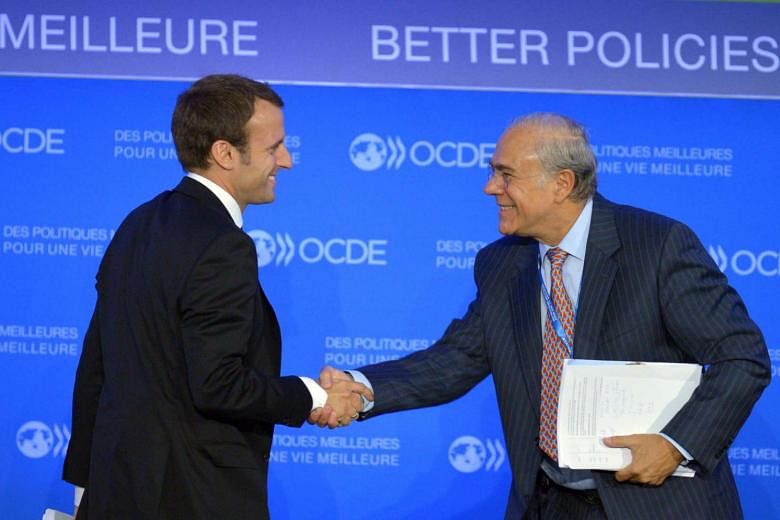LONDON (BLOOMBERG) - The world's top body for economic coordination unveiled its blueprint Monday for cracking down on international tax avoidance, an opening salvo in what promises to be a prolonged battle between countries and companies over who gets taxed and where.
The Organization for Economic Cooperation and Development (OECD), a research institute funded by 34 countries including the U.S., is seeking to curb tax haven use and other strategies by companies such as Google Inc., Starbucks Corp. and Apple Inc., which the group says costs the world as much as $240 billion a year in lost revenue.
"This is the most important development in international tax in quite a few decades," said H. David Rosenbloom, an attorney at Caplin & Drysdale in Washington and director of the international tax program at New York University's School of Law. "It will definitely make a difference. Exactly what that difference will be is hard to predict."
The new guidelines include a series of highly technical plans to limit strategies with nicknames like the "Double Irish" and the "Dutch Sandwich."
It's the result of a three-year process initiated in 2012 by the Group of 20 Nations, which asked the Paris-based OECD to develop a plan. "The problem we had is that you could easily shift risk or capital without any tax risk," said Pascal Saint-Amans, who heads the effort as director of the OECD's Center for Tax Policy and Administration. "You could have a cash box in a tax haven where there is nobody. This is over."
For years, big multinational companies have cut their tax bills using strategies now coming under public criticism: assigning valuable patent rights to shell companies based in tax havens; getting interest deductions for payments made to their own subsidiaries; or cutting deals with countries like Luxembourg to tax profits at low single digit rates.
The OECD plan will be discussed at a meeting of G-20 finance ministers in Lima on Oct. 8. If they approve it, it will then be presented to the group's leaders in Turkey in November for a vote on adoption. Countries aren't required to follow the OECD's recommendations, but many adopt the group's guidelines as their own international tax rules.
Tax regulations in the 34 member countries are required to conform to OECD standards, putting pressure on those nations to adopt some version of the organization's action plan. Although the U.S. is the OECD's biggest funder, Congressional Republicans have criticized the OECD work on tax loopholes, calling it a way for other countries to increase taxes on American companies.
Many of the multinational companies whose tax avoidance techniques have received publicity are based in the U.S. India, Brazil.
Some critics say the OECD project hasn't gone far enough, and that the international corporate tax system should be replaced with one that allocates profits according to real world factors like where employees are located or sales are made. Instead, the OECD plan builds on a system which relies on paper transactions between different subsidiaries of the same company.

